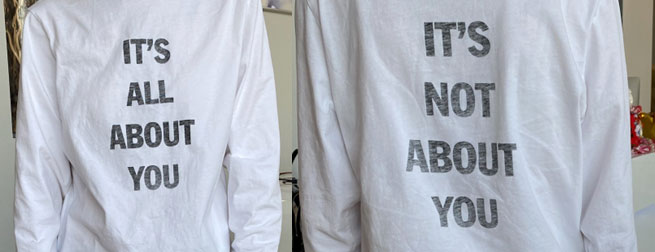For me, thinking about what it means to be authentic started when I read that one of RuPaul’s foundational beliefs is that “everybody is playing a role.”
In talking about dressing in drag, Jinkx Monsoon similarly says, “It’s armor because you’re putting on a persona.”
Why do people play roles and feel it necessary to put on a persona? Is it because these are ways of protecting one’s self? If this is the reason, then to be authentic is a very brave act.
But what does being authentic mean to a layperson? Some say that to be authentic is to act and behave the same way no matter the circumstances. Some say that one’s values should always be the compass for being one’s authentic self. A person may be seen as being authentic if they are known to speak their minds and stand by their convictions.
Notwithstanding these perfectly reasonable definitions, I think being authentic is a fluid concept to be wrestled with throughout a lifetime. I have come to the conclusion on this day at this time that we’re never not being our authentic, true, genuine, essential selves because how one presents is an innate survival instinct.
Although there are times when our authentic self may be the version of ourselves that we deliberately bring forth and exhibit, I don’t think most people wake up and decide which role they want to play that day.
However, I also believe that we are the stars in our own productions, whether fantasy, horror, drama, comedy, or all at the same time.
When someone says, “I was not being myself,” especially after doing something that they regret, we might have an inward smile and think, “Yes, you were being your authentic, true, essential self, and I understand.”

